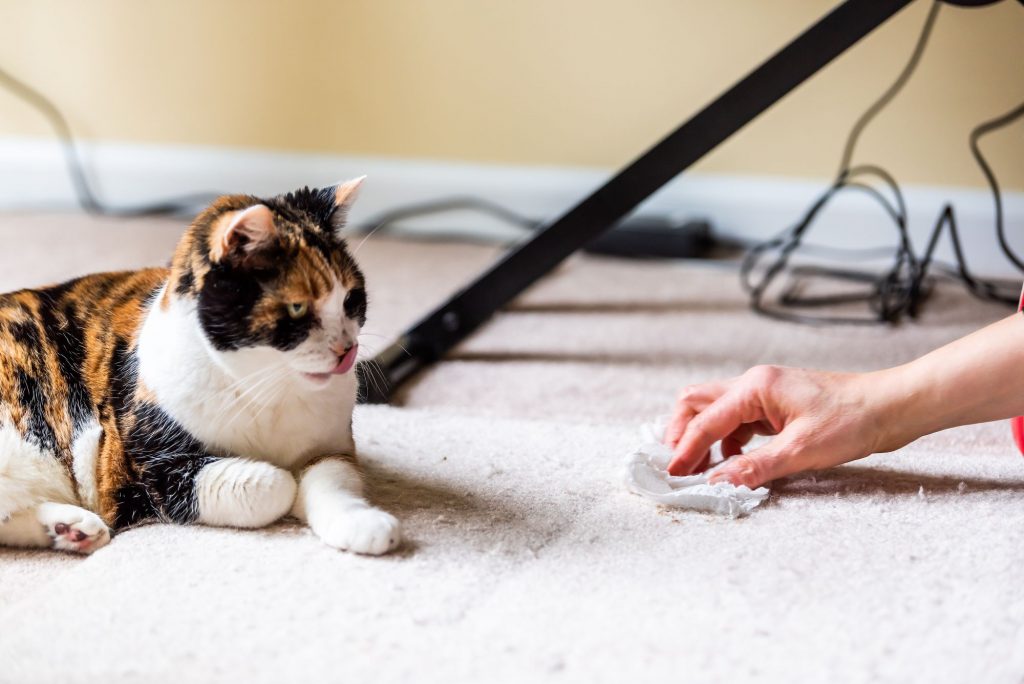Cat Hairballs: What You Should Know

From across the room, you hear gagging and retching sounds. Unfortunately, what comes next is your cat hacking up a hairball and you scurrying to clean up the mess. As a cat owner, this is a regular albeit unpleasant scenario. While hairballs can be gross, they are a common result of your cat’s grooming routine. Hairballs are harmless most of the time, although occasionally they can signal a bigger cat health problem.
What Causes Cat Hairballs
As cats groom themselves, their tongues grab hair with tiny spikes called papillae. Typically, the loose hair goes through the digestive tract with no problem. When some remains in the stomach, a hairball forms, and cats will eventually vomit to get rid of it. As you might imagine, hairballs are more common in long-haired cats. You may also notice more frequent hairballs as cats get older because they become more efficient groomers. Cats can also experience hairballs more often during seasons of the year when shedding occurs.
When to Worry
Regurgitated hairballs are often in the shape of a cylinder, rather than an actual ball, due to the narrow nature of the esophagus. They can vary in size, from one to four inches long. In most cases, a cat will pass a hairball through one end or another! However, if your cat is displaying one or more of these behaviors, it can indicate a blockage that requires veterinary care:
- Lack of appetite
- Lethargy
- Constipation
- Diarrhea
- Ongoing vomiting, gagging, retching, or hacking without producing a hairball
If any of these behaviors are happening, contact us right away at All Creatures Veterinary Hospital of Brooklyn to help you handle the situation. Many times, a veterinary exam is necessary to determine the underlying problem and decide on the best treatment.
Hairball Prevention
There’s no way to completely eliminate hairballs, but there are some steps to reduce how frequently they occur.
- Grooming: Brushing or combing your cat’s fur daily removes dead hair so there is less to ingest.
- Play: Increasing your cat’s activity improves their health overall and supports digestion.
- Specialized diet: You might try giving your cat wet food which can help pass the hair through the digestive system. Certain brands of food have a special hairball formula that is high in fiber or contains fatty acids to improve a cat’s coat.
- Hairball products: You might consider using a regular supplement designed to prevent hairballs from forming or assist with lubricating a cat’s digestive tract. There are also mild laxatives formulated for cats to relieve constipation.
It’s best to consult with your vet before changing your cat’s diet or adding supplements. You can easily incorporate activities like brushing or playing into your everyday routine. If you have questions about your cat’s diet or want advice for managing hairballs, call us at (347) 915-1420. We’re here to help keep your pet in the best health possible.

